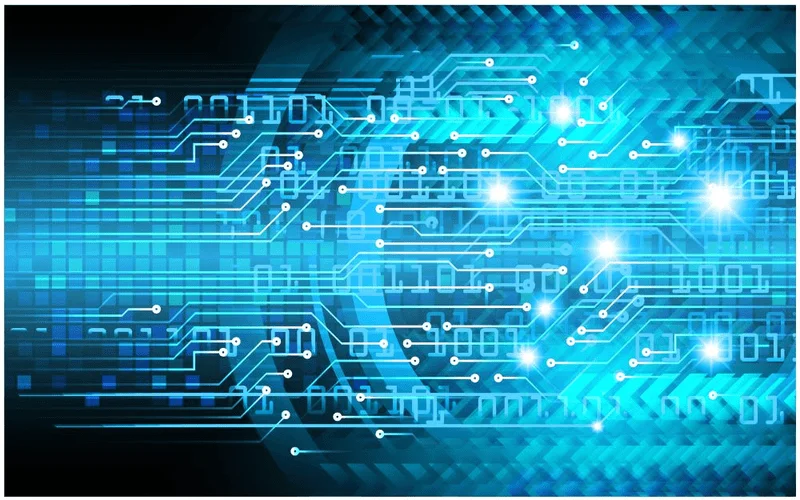AI bolsters the capabilities of these options by helping to foretell issues, allowing care groups to preemptively intervene in cases of medical deterioration, and flagging patients who are likely to profit from hospital-at-home providers compared to inpatient care. AI-driven affected person engagement also can take the type of solutions designed to conduct patient outreach primarily based on scientific threat evaluation data or instruments to translate well being info for customers in a affected person portal. This creates frustration on each side, as clinicians want to spend extra time on care and less on administrative duties, whereas patients need their healthcare to be accessible and frictionless. A March 2024 research published by Johns Hopkins researchers in Communications Medicine confirmed that a deep neural network-based automated detection software could assist emergency room clinicians in diagnosing COVID-19 by analyzing lung ultrasound pictures. AI applied sciences are already altering medical imaging by enhancing screening, risk evaluation and precision medicine. AI tools are key to addressing these points and giving suppliers back their time so that they will focus on sufferers.

By introducing advanced technologies like NLP, ML, and information analytics, AI can significantly provide real-time, accurate, and up-to-date information for practitioners on the hospital. According to the McKinsey Global Institute, ML and AI in the pharmaceutical sector have the potential to contribute roughly $100 billion annually to the US healthcare system [78]. Researchers claim that these applied sciences enhance decision-making, maximize creativity, increase the effectiveness of analysis and clinical trials, and produce new tools that benefit healthcare providers, sufferers, insurers, and regulators [78].
Recent developments in statistical physics, machine learning, and inference algorithms are being explored for his or her potential in improving medical diagnostic approaches.[111] Combining the abilities of medical professionals and machines might help overcome decision-making weaknesses in medical follow. To accomplish that, one needs exact illness definitions and a probabilistic evaluation of signs and molecular profiles. Physicists have been learning related issues for years, using microscopic elements and their interactions to extract macroscopic states of assorted physical methods. Physics inspired machine studying approaches can thus be applied to study disease processes and to carry out biomarker evaluation. Research has indicated that AI powered by synthetic neural networks can be just as effective as human radiologists at detecting indicators of breast cancer in addition to different situations. In addition to helping clinicians spot early signs of illness, AI also can assist make the staggering number of medical photographs that clinicians should hold track of more manageable by detecting vital items of a affected person’s historical past and presenting the relevant images to them.
AI enables fast and comprehensive retrieval of drug-related information from totally different resources by way of its capability to analyze the present medical literature, drug databases, and clinical pointers to provide correct and evidence-based choices for healthcare providers. Using automated response methods, AI-powered digital assistants can handle common questions and supply detailed medical data to healthcare providers [79]. AI-powered chatbots help reduce the workload on healthcare providers, permitting them to give attention to extra sophisticated instances that require their experience. Also, AI algorithms can generate particular suggestions for particular person sufferers, contemplating elements like well being situations, previous medical and drugs history, and social/lifestyle preferences, permitting healthcare professionals to optimize treatment choices and dosages [80, 81]. The potential purposes of AI in assisting clinicians with treatment choices, particularly in predicting remedy response, have gained recognition [49].
Types Of Ai Of Relevance To Healthcare
The Robotics Institute at Carnegie Mellon University developed HeartLander, a miniature cell robotic designed to facilitate therapy on the heart. Under a physician’s control, the tiny robot enters the chest by way of a small incision, navigates to sure places of the heart by itself, adheres to the surface of the guts and administers therapy.

But this research, particularly scientific trials, requires huge amounts of cash, time and sources. Public perception of AI in healthcare varies, with people expressing willingness to make use of AI for health functions whereas nonetheless preferring human practitioners in complicated issues. Trust-building and affected person training are crucial for the profitable integration of AI in healthcare apply. Overcoming challenges like knowledge high quality, privacy, bias, and the need for human expertise is essential for accountable and effective AI integration. The biggest challenge to AI in these healthcare domains is not whether or not the applied sciences will be succesful sufficient to be useful, however quite ensuring their adoption in daily clinical apply.
Examples Of Ai In Healthcare
Furthermore, the authors recommend that comparable methods can be utilized to analyze photographs of patients with appendicitis or even to detect infections similar to COVID-19 utilizing blood specimens or images [19]. Research on whether or not individuals choose AI over healthcare practitioners has proven combined results relying on the context, type of AI system, and participants’ traits [107, 108]. Some surveys have indicated that individuals are typically prepared to make use of or work together with AI for health-related functions corresponding to analysis, treatment, monitoring, or choice help [108,109,110]. However, different research have suggested that individuals nonetheless prefer human healthcare practitioners over AI, particularly for advanced or sensitive issues similar to psychological health, continual ailments, or end-of-life care [108, 111]. In a US-based research, 60% of members expressed discomfort with providers relying on AI for their medical care.
This significant progress means that substantial transformations are anticipated within the operations of medical suppliers, hospitals, pharmaceutical and biotechnology companies, and different healthcare business individuals. This phenomenon, gaining momentum over the previous decade, has seen the function of AI in healthcare emerge as a cornerstone for innovation and efficiency in medical practices worldwide. Understanding when and the way AI became so integral requires exploring its functions https://www.globalcloudteam.com/our-ai-cases/, benefits, and the groundbreaking examples of healthcare AI. It is expected that doctors who take benefit of AI in healthcare will provide greater quality healthcare than docs and medical establishments who do not.[152] AI will doubtless not fully replace healthcare staff but rather give them extra time to attend to their patients.

This research showed that using an AI system to interpret mammograms had an absolute discount in false positives and false negatives by 5.7% and 9.4%, respectively [11]. Another study was carried out in South Korea, where authors in contrast AI diagnoses of breast cancer versus radiologists. The AI-utilized analysis was more delicate to diagnose breast most cancers with mass compared to radiologists, 90% vs. 78%, respectively.
The company’s software helps pathology labs remove bottlenecks in data administration and makes use of AI-powered picture evaluation to attach knowledge factors that help most cancers discovery and therapy. Johns Hopkins Hospital partnered with GE Healthcare to use predictive AI methods to improve the effectivity of patient operational circulate. Since implementing the program, the power has assigned sufferers admitted to the emergency division to beds 38 p.c quicker. VirtuSense makes use of AI sensors to trace a patient’s movements so that providers and caregivers can be notified of potential falls. The company’s products embrace VSTAlert, which may predict when a affected person intends to face up and notify acceptable medical staff, and VST Balance, which employs AI and machine vision to investigate a person’s risk of falling throughout the subsequent 12 months.
Benefits And Dangers Of Using Synthetic Intelligence For Pharmaceutical Improvement And Delivery
The process usually requires humans to manually translate the data, which isn’t only time-consuming and labor-intensive but can also introduce new errors that would threaten patient safety. AI can be useful when healthcare organizations move to new EHR platforms and should undertake legacy information conversion. This process usually reveals that affected person data are missing, incomplete or inconsistent, which may create important inefficiencies. AI and ML, particularly, are revolutionizing drug manufacturing by enhancing course of optimization, predictive maintenance and high quality management while flagging data patterns a human may miss, bettering effectivity. Drug discovery, improvement and manufacturing have created new treatment choices for a variety of health situations.
Automation and AI have considerably improved laboratory effectivity in areas like blood cultures, susceptibility testing, and molecular platforms. This allows for a result within the first 24 to forty eight h, facilitating the number of suitable antibiotic remedy for sufferers with constructive blood cultures [21, 26]. Consequently, incorporating AI in scientific microbiology laboratories can assist in choosing acceptable antibiotic therapy regimens, a crucial factor in attaining high cure rates for numerous infectious ailments [21, 26]. However, extra data are rising for the appliance of AI in diagnosing totally different illnesses, corresponding to cancer. A examine was printed in the UK where authors input a large dataset of mammograms into an AI system for breast most cancers prognosis.
For occasion, AI algorithms can analyze medical images, similar to X-rays and MRIs, with greater accuracy and speed than human radiologists, usually detecting diseases similar to cancer at earlier levels. Of this complete, 10% use AI to help clinical decision-making and 8% in the analysis of medical pictures. AI has improved accuracy in picture diagnosis, helping to detect ailments such as cancer, cardiovascular diseases, and eye diseases. AI-based tools, similar to those developed by Google Health, can analyze X-rays, CT scans, and MRIs with high precision. In healthcare, guidelines usually take a lot time, from establishing the data hole that needs to be fulfilled to publishing and disseminating these tips.
Ethical Implications
The real turning level, nevertheless, came with the realization of how AI may handle a few of the most pressing challenges in healthcare, ranging from diagnostic accuracy to customized treatment and operational effectivity. For instance, NLP may be utilized to medical information to precisely diagnose illnesses by extracting helpful info from health knowledge. Additionally, it can be used to identify relevant treatments and medications for every affected person or even predict potential health risks based mostly on past well being information. Furthermore, NLP additionally provides clinicians with highly effective instruments for managing large amounts of complicated data – one thing which might usually take much longer to do manually. Yet on the similar time—so long as we can mitigate these risks—AI carries monumental potential to profit sufferers, docs, and hospital employees.
- As a end result, we anticipate to see restricted use of AI in clinical apply inside 5 years and extra intensive use inside 10.
- AI in healthcare, then, is using machines to analyze and act on medical data, often with the goal of predicting a particular end result.
- Continued research, innovation, and interdisciplinary collaboration are necessary to unlock the complete potential of AI in healthcare.
- Also, if the data space adjustments in a significant method, changing the foundations may be burdensome and laborious.
- Healthcare AI has generated major attention lately, but understanding the basics of these applied sciences, their professionals and cons, and the way they shape the healthcare industry is vital.
Machine studying is a statistical approach for fitting models to data and to ‘learn’ by training fashions with knowledge. An MIT group (link resides outside ibm.com) developed an ML algorithm to determine when a human professional is required. In some cases, corresponding to identifying cardiomegaly in chest X-rays, they discovered that a hybrid human-AI model produced the best outcomes.
Linus Health
Perhaps in the future these technologies shall be so intermingled that composite options will be extra doubtless or possible. Vicarious Surgical combines digital reality with AI-enabled robots so surgeons can perform minimally invasive operations. Using the company’s know-how, surgeons can virtually shrink and discover the inside of a patient’s physique intimately.

Greenlight Guru, a medical know-how company, uses AI in its search engine to detect and assess security dangers in community devices. The company focuses on growing medical software, and its search engine leverages machine learning to combination and course of trade information. Meanwhile, its risk management platform supplies auto-calculated threat assessments, amongst different providers.
Actions like these build on essential work already underway at HHS—such as the agency’s latest rule on transparency for AI in digital well being data and the Food and Drug Administration’s authorization of practically seven hundred AI-enabled medical gadgets. Revenue cycle administration is essential to ensuring that well being techniques can concentrate on providing high-quality take care of patients. However, successfully tackling income challenges and optimizing operations requires heavy lifting on the administrative aspect. Expert systems require human experts and information engineers to assemble a collection of guidelines in a selected information domain. However, when the number of rules is giant (usually over a number of thousand) and the rules begin to conflict with each other, they have a tendency to interrupt down.
Cohere Health
Currently, ChatGPT, launched two years in the past, is considered one of the best latest technological developments, popularizing synthetic intelligence (AI) – a technology that has driven important advances in areas similar to healthcare, remodeling diagnoses, treatments, and information management. In specific, providers are investigating AI- and automation-based tools to streamline claims management. The claims management process is rife with labor- and resource-intensive tasks, corresponding to managing denials and medical coding.























